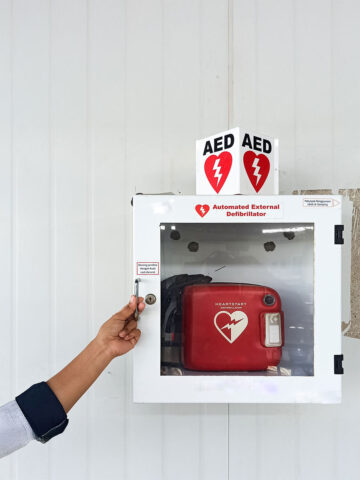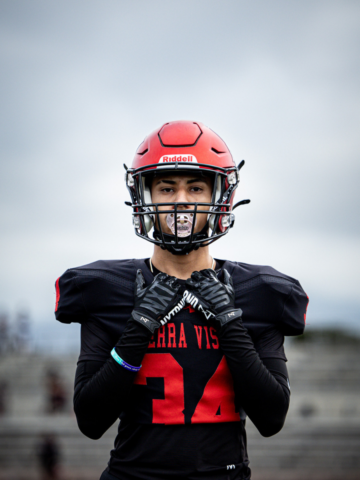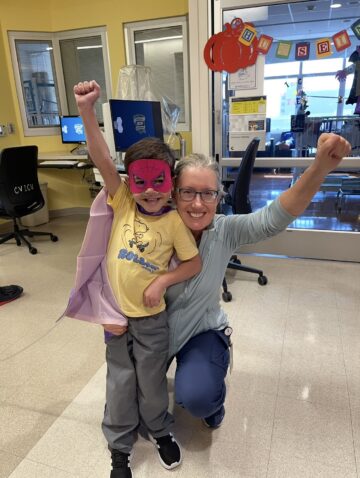At 27 weeks pregnant, Kayleen Enoka discovered her baby boy, Ryden, had hypoplastic left heart syndrome (HLHS), a birth defect where the left side of the heart does not form correctly and affects normal blood flow through the heart. As a young, first-time mom, she was overwhelmed by the news.
“I felt incredibly helpless. I felt that I couldn’t do anything to help my baby and I wondered what would happen to him. I also felt that I must have done something wrong during the pregnancy to cause his heart defect. I was reassured by the perinatologist and the cardiologist that his defect wasn’t because of something I had done wrong. My mother sat with me through the diagnosis and held my hand and hugged me as I cried,” Kayleen vividly remembers.
After Ryden was born, he was immediately transferred to CHOC Hospital to be cared for by our CHOC Heart Institute. Kayleen was a partner in her son’s care from the beginning. He had to undergo a series of three surgeries, performed by Dr. Richard Gates, pediatric cardiothoracic surgeon at CHOC, with the first one, the Norwood Procedure, at just five days old. During the surgery, Dr. Gates made Ryden’s right ventricle the main pumping chamber for blood flow to his body. A shunt was also placed as a pathway for blood to flow into his lungs to receive oxygen.
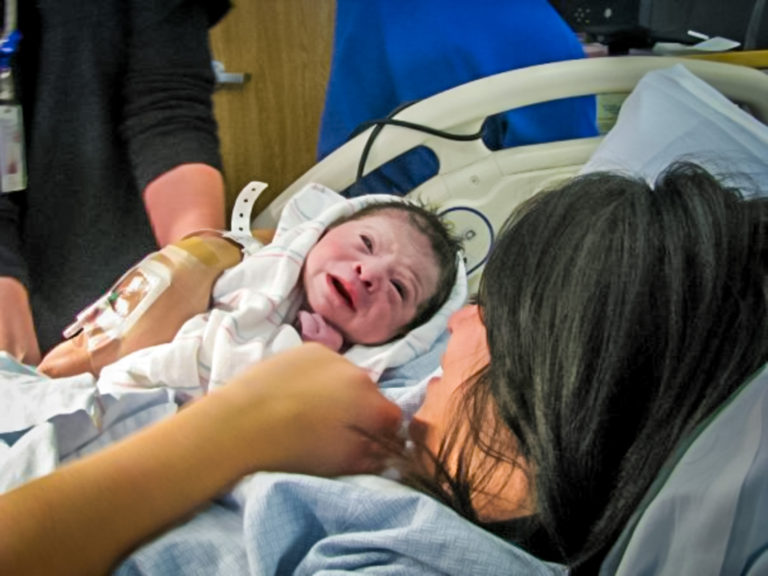
“My family and I all sat together waiting for news during the surgery. It was hard, but having so much support helped a lot. I remember when we walked into the room and everyone seemed to be moving so fast. When I asked how he was doing, I was told he was tenuous. That word has resonated with me over the years because I remember feeling that he wouldn’t survive the night. The doctors showed me where the bypass machine was and told me that it was there in case he needed it; again, I was frightened for my baby wondering if he would be strong enough to get through this. I believed in my heart that he was a fighter, but watching all the activity and how small he looked in his hospital bed, made it much harder to believe,” Kayleen says.
Ryden’s second surgery, the Glenn Shunt Procedure, performed when he was 6 months old, was just as scary because Ryden’s health was fragile, Kayleen recalls. The procedure created a direct connection between the pulmonary artery and the vessel returning oxygen-poor blood from the upper part of the body to the heart. After the surgery, Ryden had numerous complications and was hospitalized for 34 days.
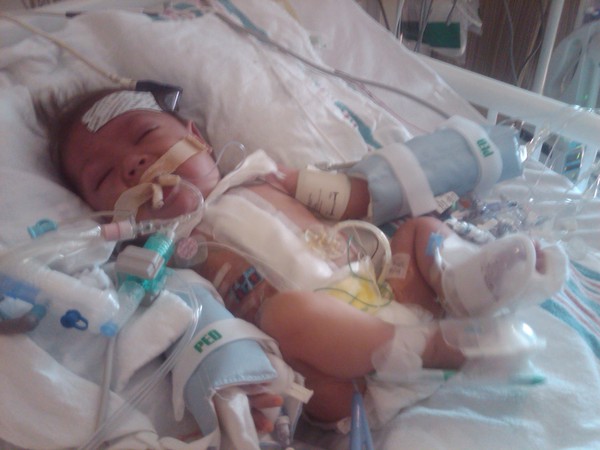
By the time of Ryden’s third surgery, the Fontan when he was 4 years old, Kayleen was ready but apprehensive. “Since Ryden was a little older, I could be honest with him. I told him what was going to happen, and even though he was scared, he was aware and was still able to smile,” Kayleen says.
Dr. Gates connected Ryden’s pulmonary artery and the vessel returning oxygen-poor blood from the lower part of the body to the heart, which allowed the rest of the blood coming back from the body to go to the lungs. Ryden spent ten days in the hospital.
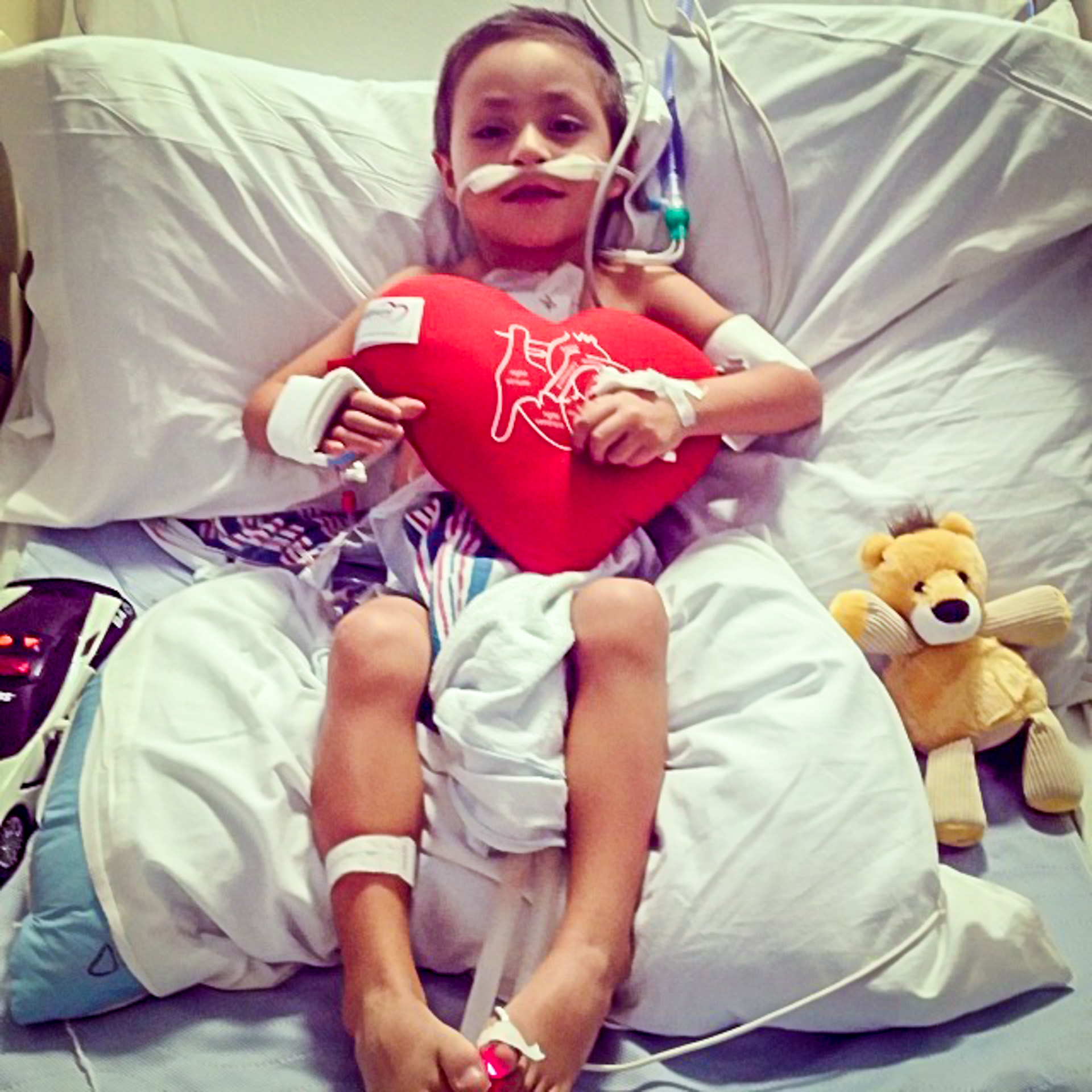
Throughout the years, Ryden has experienced arrhythmias, is susceptible to colds, takes multiple medications, and was recently diagnosed with asthma. Kayleen has developed a close relationship with the CHOC Heart Institute team.
“I have always felt like I am a part of the team. In the beginning, I could never have too many questions; the doctors and nurses always took the time to make sure I understood what was happening. Now, when Ryden needs to be hospitalized, the care team always listens to my input. We work together because they understand that I know my son best,” she says.
Among the many experts involved in Ryden’s care, the Enokas have a special relationship with Dr. Anthony Chang, pediatric cardiologist at CHOC.
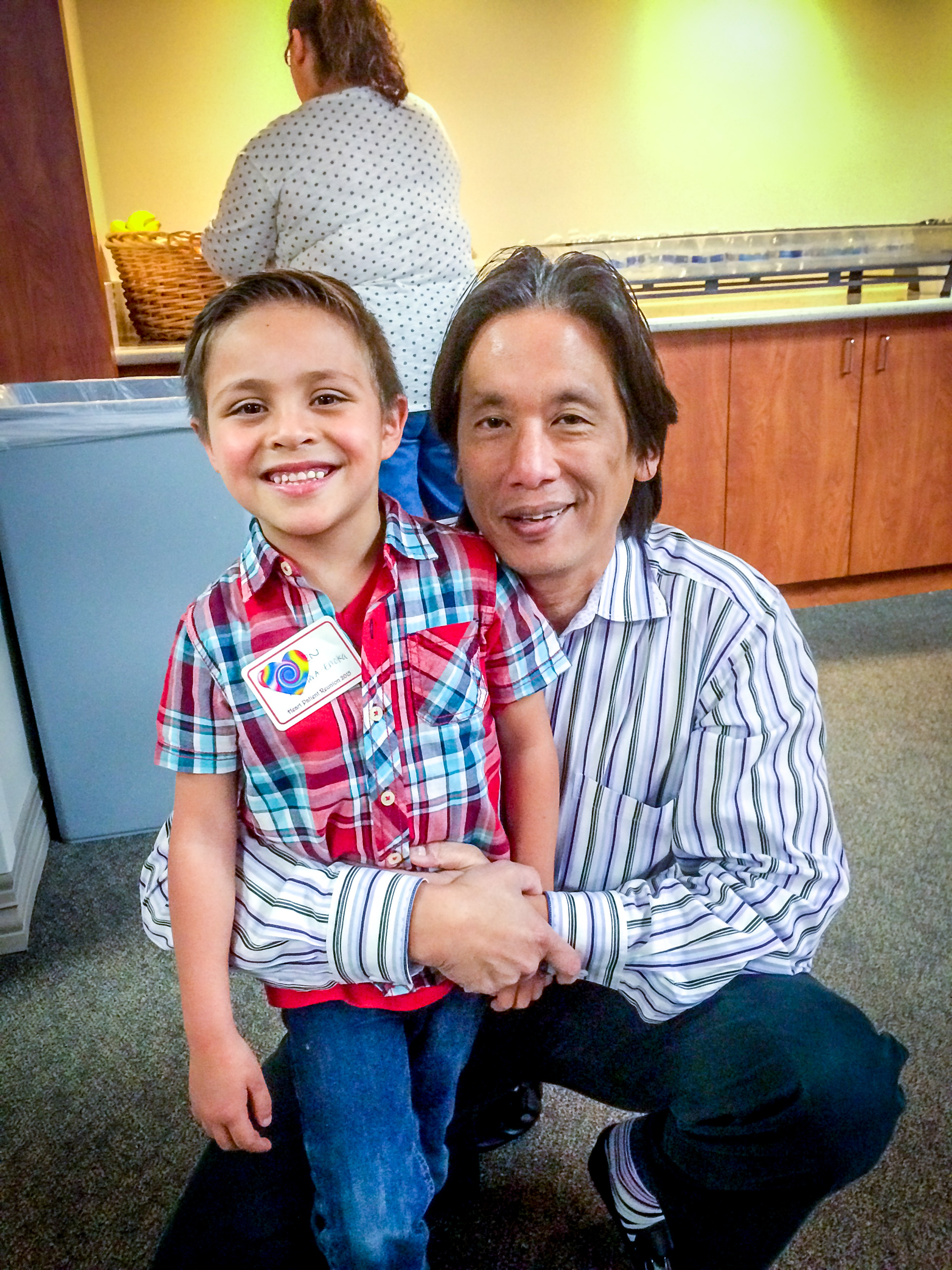
“Dr. Chang has been amazing. I wouldn’t have chosen another cardiologist because he takes the time to care for his patients. Ryden really admires him and often says when he grows up he wants to work on hearts like him,” Kayleen says.
“Ever since I took care of a baby with HLHS in 1983, my passion to help children with congenital heart disease has never subsided. HLHS is a heart defect that requires the supreme dedication of both doctors and nurses in cardiology and cardiac surgery as well as intensive care. It is, however, parents like Kayleen who continue to inspire all of us to help these children, and humbles us in all that they do when these children are not in the hospital or clinic,” Dr. Chang says.
Kayleen’s appreciation for CHOC and its mission inspired her to become an employee. She works as a department assistant in the clinical education and professional development department. She also volunteers her time as a member of the Family Advisory Council, an important group of patients’ family members who provide input on decisions, initiatives and discussions at CHOC. In addition, Kayleen participates in the CHOC Walk every year with “Team Ryden,” including friends, family and cardiovascular intensive care unit (CVICU) nurses.
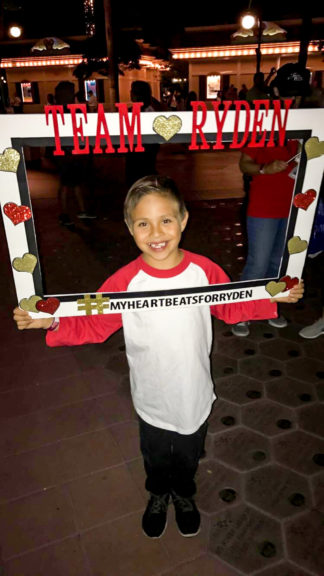
Today, Ryden is a happy, fun-loving 7-year-old, who enjoys swimming and playing baseball. Throughout his journey, one thing that has remained unwavering, is Kayleen and Ryden’s close relationship. When Ryden has questions about his heart, Kayleen is always happy to talk openly and lovingly with her son, and reminds him that he has a “special heart.” His middle name — Pu’uwaikila — means “heart of steel,” and Kayleen’s little fighter is surely living up to the name.
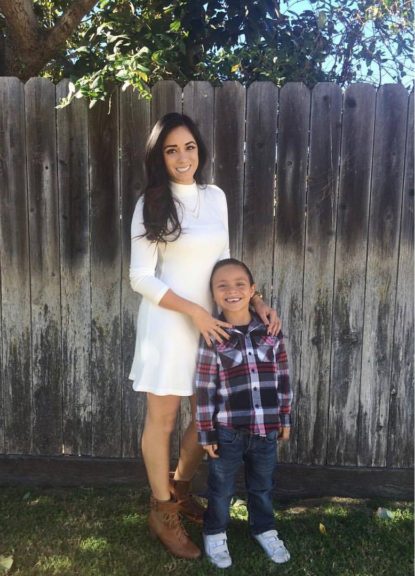
As American Heart Month comes to a close, Kayleen offers parents of heart patients the following tried and true tips that have helped her along the way:
- Trust your child to know his limits. I’ve always let Ryden push himself, while still keeping a close eye on him of course.
- When your child is developmetally ready, be open and honest about his condition. You might be worried you’ll scare him/her, but I’ve always felt that Ryden has the right to know what’s happening to him.
- Children with congenital heart diseases may have self-esteem issues (i.e. scars, lack of ability to keep up with other children.) Remember to let your child know that he/she is special and what makes them different is also what makes them amazing. I always tell Ryden that his scar on his chest is what shows his strength. And, that chicks dig scars – it’s an inside joke (he’s never allowed to date).
Get more expert health advice delivered to your inbox monthly by subscribing to the KidsHealth newsletter here.
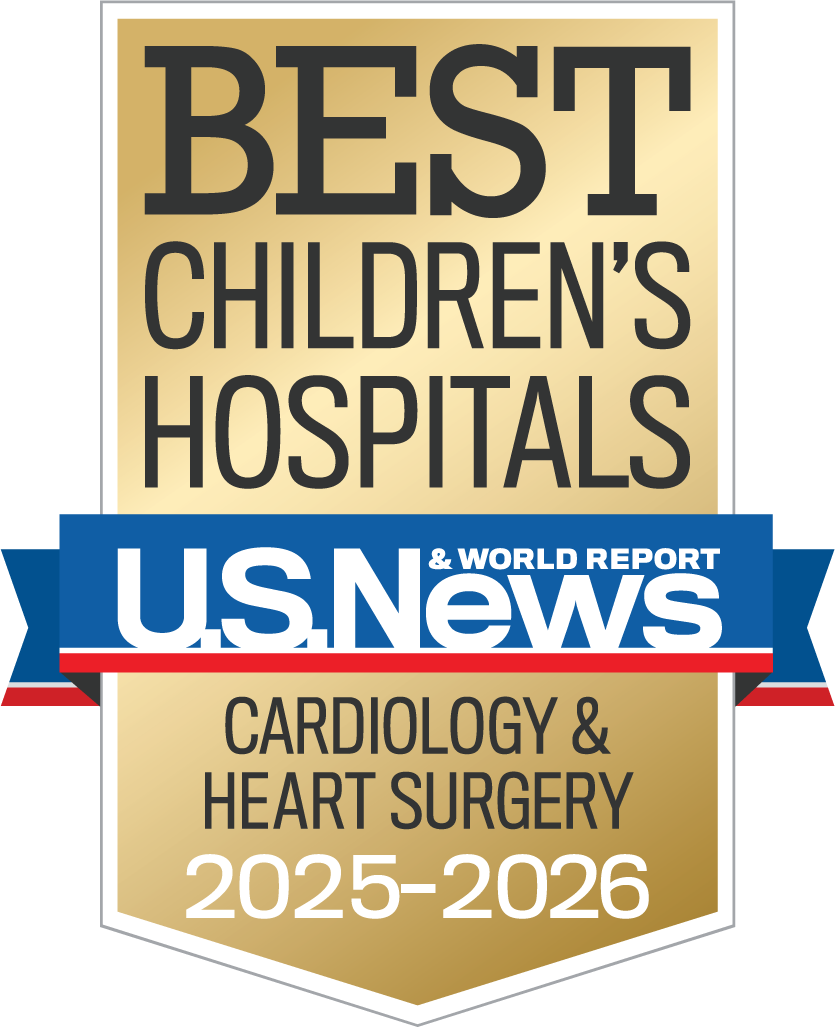
Learn more about CHOC’s Heart Institute
CHOC and UCLA Health together have been ranked among the top children’s hospitals in the nation for Cardiology & Heart Surgery by U.S. News & World Report.

